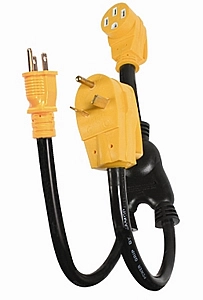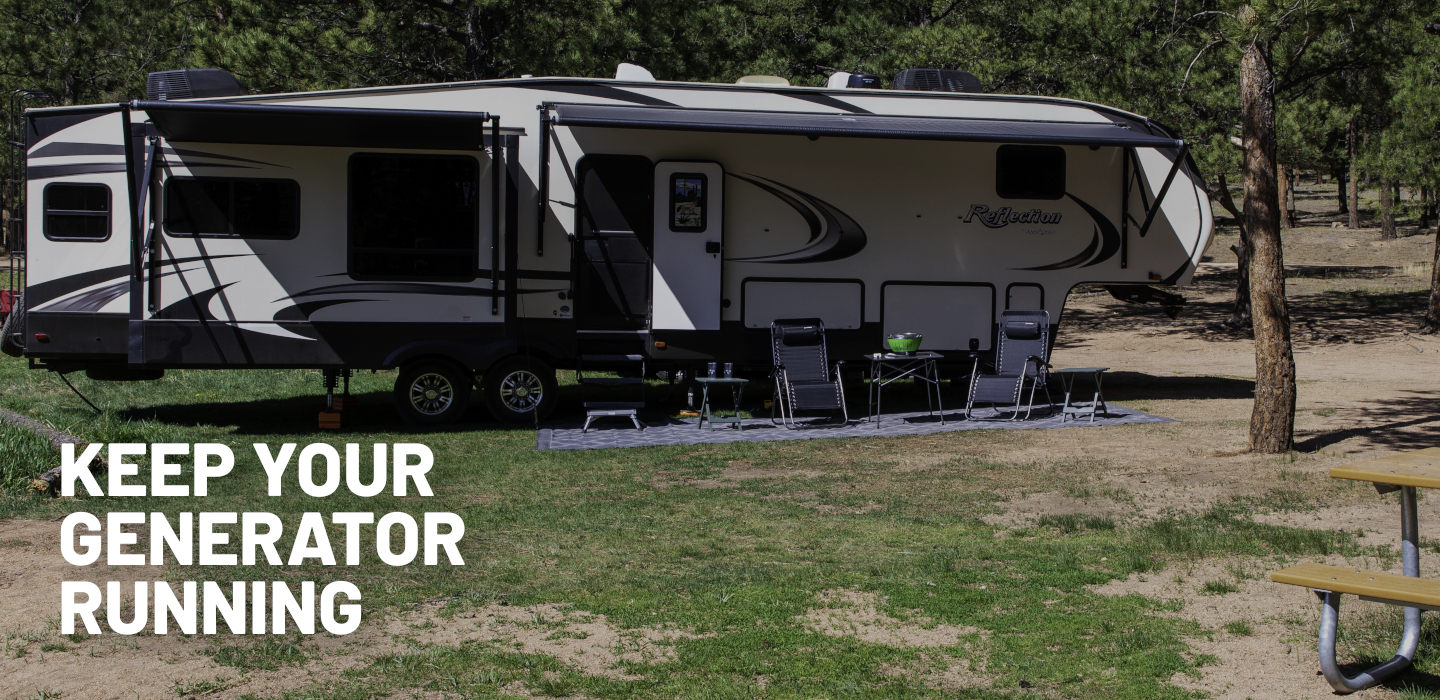
RV Doctor's Orders: Should I Use a Cheater Box?
Share article
Every week we take a look back at the RV Doctor Gary Bunzer's answers to your tough questions. He has been providing insight into troubleshooting, repair and preventative RV maintenance since 1968.
Will an RV Cheater Box Work?
I was recently given a setup which has a 30-amp plug on one side and a 20-amp plug on the other side. The output is a 50-amp plug. I was told that if you plug in one side to a 30-amp source and the other to a 20-amp source, you will end up with 50-amp. Do these things actually work? No brand name on it, so I assume they are homemade. — Jerry M.
The RV Doctor's Orders
Jerry, what you have is called a “cheater box” and though some are indeed homemade, there are a couple of suppliers that have them available online (as pictured). I do not recommend cheater boxes for a couple of reasons. First and foremost, they are not “approved” for RV use. Safety is paramount and I would never recommend something not approved for RV use. In most cases, the 20-amp receptacle at a campground will be GFCI-protected (it is a code requirement). Cheater boxes will automatically trip that GFCI breaker and you’ll only be provided power from the 30-amp side.


Also, if the 20-amp receptacle and the 30-amp receptacle are connected to the same electrical phase, the cheater box will not function. To my knowledge, most 20-amp and 30-amp receptacles in the same pedestal at the same site are indeed wired to the same phase. If each receptacle is connected 180-degrees to an opposite phase, it might work. However, if there is an EMS (electrical management system), installed in the coach, or a sophisticated inverter/charger in the system, the cheater box will likely not function, or possibly add confusion to the EMS.
Furthermore, you cannot use a cheater box with surge protection. They simply will not allow the voltage to pass through to the RV. Another reason is the sizing of the conductors. The neutral wire in the cheater box feeding its 50-amp receptacle must have the capacity to carry 50-amps as provided by two, opposite-phased sources of 120-volt hot wires.
And finally, they’re called “cheater boxes” for a reason. If the campground is not aware of you using a cheater box, you’d simply be using more power than what it is expected of you (and charged accordingly by the campground owner), in those rare instances when the cheater box might actually work. Indeed, when all the right circumstances are correct, including permission from the campground owner, they have been known to work. A lot depends on how that particular campground was electrically constructed.
The bottom line is that I consider it risky to use a cheater box. It’s much better to connect a 50-amp coach to a 50-amp receptacle. I’m not even fond of those 30-50 adapter plugs because it eliminates one of the safety factors built into the RV. FYI, updated 2017 electrical code for campgrounds calls for more 50-amp sites in campgrounds, so hopefully the park owners can keep up with the demand. The smart campground operators are already upgrading their parks to accommodate more 50-amp sites since more and more RVs demand the higher ampacity than ever before.
All effort is made to ensure the correctness of Gary’s responses; however, not all responses will apply in every instance. Some situations may mandate a visual inspection and further hands-on testing. It is imperative that if you choose to follow any instructions or procedures outlined in The Doctor’s Orders column, you must first satisfy yourself thoroughly that neither personal nor product safety will be compromised or jeopardized. If you are in doubt or do not feel comfortable about a procedure, do not continue. Simply call your local RV service facility and make an appointment with them. Remember, the advice, recommendations and procedures offered by The RV Doctor are solely those of Gary. They do not necessarily reflect the opinions, procedures and recommendations of Lippert, this publication or any of its advertisers.





